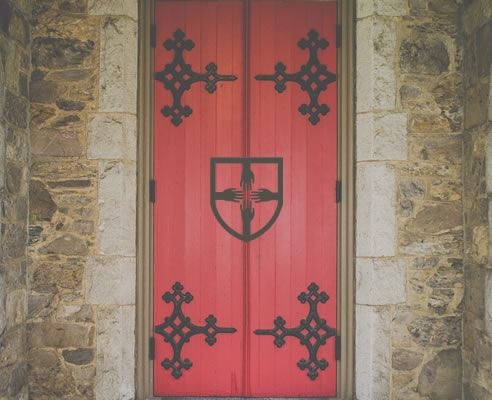At times I felt alone; at times I battled with the idea that I was the maker of my life. When I was caught up in a constant desire for fame and material wealth, my partner was not with me. I was alone, trying to figure out the path to happiness. Drug addiction gave me the illusion of control. Many years passed of trouble, with the law, with the family, and with the job. I met my end when alcohol brought me to the place that an alcoholic knows well: loneliness, an indescribable sadness and fear. I reached out for help in the physical world, to the people in twelve step recovery.
I started to walk in the sunlight of the Spirit, life did take on new meaning,and I found the friend who I thought had left me behind. But my lessons were not complete. For 12 plus years, fame and fortune threw applause my way and I thought that I had “arrived”. One day while in Dover, England, after carousing around the links, I left my friend for my old acquaintance: addiction. The walls did not come immediately crashing down, there was no black cloud, my bank account was not emptied, and my wife of 10 years (who also had 15 plus years of recovery) suspected nothing. Yet the slow return of loneliness and despair was inevitable and it felt like torture. Eventually I was alone again; or so I felt.
Leaving prison and living in the big northern city did not fulfill that desire in me which I could not identify. I turned to the country in South Georgia. While seeking fame in an anonymous fellowship, I met with a Vicar who freely offered his church's space for our new recovery meeting. He had moved here and became Vicar of the church only two weeks prior to us meeting. Things developed and I struggled with staying clean but was never judged by the members of the congregation, and certainly not by the Vicar or Youth Minister. I had never made my own decision to become a member of a congregation; that decision was made for me as a youngster. This time the decision is mine: to follow a path that is not clearly visible yet, but my thoughts about my purpose are clear: carry the message of God, using recovery, to reach the man on paper, the mother hiding from her family, and any needing help, to mend the shame and prejudice surrounding the addiction and recovery process.
Say the word “God” and watch how addicted people react. Exhibit an “act of God” and feel them respond. The words are not useful until the spirit is open to them. One cannot graft a new idea into a closed mind. God has put me in a position in my life I never imagined, given me an opportunity to carry his message, through my experience, to a community I have grown to admire. Homelessness, treatment, affiliation with the rich and poor, prison, popularity, fortune, children and my family relationships are some of the experiences I carry.
Our Church now has more recovery meetings of any place in our county. We plan to show the documentary “The Anonymous People” for the community in October. We are praying for guidance to discover our signature mission.
I am taking more time for prayerful meditation and the worldly clamors are becoming quieter. My journey was always with God. The practice of discernment has become a base for my faith and my continuing relationship with God.
-Anonymous
 In the early days of the Church, when the front door of the parish was painted red it was said to signify sanctuary – that the ground beyond these doors was holy, and anyone who entered through them was safe from harm.
In the early days of the Church, when the front door of the parish was painted red it was said to signify sanctuary – that the ground beyond these doors was holy, and anyone who entered through them was safe from harm.